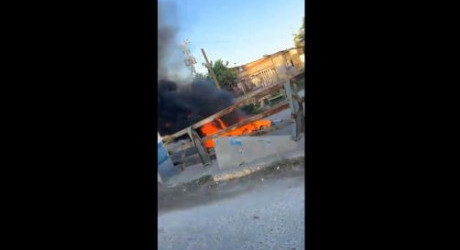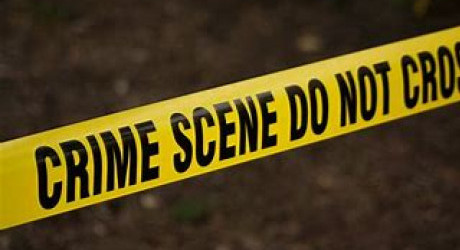By Earl Moxam
Special Assignments Editor
Last week the US Senate Special Committee on Ageing held hearings on the impact of the infamous lottery scam emanating from Jamaica on American citizens, particularly vulnerable seniors. These elderly Americans have been duped out of millions of dollars from their savings by criminals making calls from Jamaica tricking them into believing that they have won huge sums in a non-existent lottery.
Well, after years of relative quiet, the American media got in on the act, coming down to Jamaica and providing extensive coverage on the issue. This in turn spurred leading members of the US senate, on both sides, quite appropriately, to convene last week’s committee hearings where the matter was fully ventilated.
Upon learning of this development, the Jamaican government, alarmed at the possible damage to the country’s tourism and investment image, dispatched several ministers to Washington. They, along with our man in Washington, Ambassador Stephen Vasciannie, tried their best to convince the Americans that Jamaica was not ignoring the problem and was very close to passing greatly strengthened legislative action with more stringent punitive measures to combat this evil lotto scam.
Now, it is clear that the Jamaica government had no choice but to take the action which it did last week. It had to respond to the actions of the legislative branch of the American government which is determined to protect the citizens of the United States who are threatened by the actions of the citizens of another country; which brings me to another issue:
Even as the Senate Special Committee on Ageing was convening its hearings on the lotto scam, another group of senators was engaged in its own deliberations on gun control proposals, including a possible assault weapons ban, proposed by the admirable Senator Dianne Feinstein of California.
In my opinion, if it turns out that the Jamaican government did not similarly take an interest in the deliberations of that committee, then that is a great pity and a crucial opportunity missed and we have not been told of any attempt to even speak privately with Senator Feinstein or anybody else associated with that initiative.
While many will argue that this is a purely American domestic matter which we should not be interested in, I sincerely beg to differ! To the extent that the Americans reform their laws and regulations relating to gun control and make it more difficult for these deadly weapons to get into the wrong hands, it could help to limit the number of guns ending up in vulnerable countries such as Jamaica. Then there would have to be additional steps such as enhanced border control measures to detect more of the guns leaving the United States by air and sea.
SECOND AMENDMENT
It is well known that because of the hallowed Second Amendment to the United States Constitution, getting common sense gun control in that country for the protection of its own citizens has become well nigh impossible in recent decades.
That same attitude has caused the United States government to refrain from ratifying international treaties relating to the movement of illegal weapons into other countries, even when there is a president sympathetic to that goal in the White House.
One such example is the OAS Firearms Convention, known more properly as CIFTA; the Inter-American Convention against the Illicit Manufacture of and Trafficking in Firearms. This treaty was signed by President Bill Clinton in 1997 but is yet to be ratified by the US Senate. President Barrack Obama also declared his support of the treaty in 2009 but it remains a useless piece of paper because of persistent domestic opposition.
One of the chief backers of that treaty is the same Senator Diane Feinstein who is now pushing for strong domestic gun control measures.
Again I ask: Did our ministers of government take time either before or during that most recent visit to Washington to press home the point that the impact of the widespread availability of guns in that country is reaching beyond its own borders into lives of the Jamaican people and of other people across the hemisphere?
HILLARY CLINTON
Shortly after she became US Secretary of State in 2009, Hillary Clinton admitted during a visit to Mexico that the US must take part of the blame for drug-related violence in Mexico. She said America's appetite for drugs and its inability to stop arms crossing the border were helping fuel the violence in that country. The same American demand for drugs which in turn fuels the trade in illicit guns and money derived from it have served to undermine Jamaica as a source country for some drugs and a transshipment point for others coming from Latin America.
At the start of 2013 there were approximately 875 million small arms in circulation, worldwide, and of that an estimated 350 million were in the United States. That’s more guns than people in that country.
Using 1980 as a benchmark, there have been more than 30,000 murders in Jamaica, with a population of less than three million, in 32 years. The overwhelming majority of these murders were gun killings.
Given the ready availability of guns in the America, given the proximity of Jamaica to the United States, given the use of guns in the drugs trade, involving some Americans and their counterparts elsewhere, given the connections between some Jamaicans of evil intent in the US and their counterparts back here, and given our porous borders, it is not hard to imagine that a relatively sizable number of those guns enter Jamaica, either directly from that country or through third countries in the hemisphere, on an annual basis.
MEXICO
In 2009 Mexico's ambassador to the US urged America to stop the flow of guns and cash that pass into his country, fuelling the country's drug wars. He said US money and weapons provided the drug cartels with the means to "corrupt, bribe and kill".
We also have an ambassador to the United States. He is Professor Stephen Vasciannie who also happens to be our Permanent Representative to the Organization of American States which, as I highlighted earlier, has a small arms control treaty awaiting American ratification.
Generally, his political bosses back here in Kingston have been very quiet on this matter of illegal guns being brought in from other countries and undermining the stability of our society.
This is an international issue on which we cannot remain silent. In that regard, I agree with this writer in the Gleaner newspaper who, on October 1, 1996 said the following: “Now, some people may well take the view that, as a nation, we are too small to have big chat… Independence and sovereignty should mean more than silence: self-determination, at its core, must include the right to have a position on international affairs. It cannot mean fearful whimpering in the corner.”
I agreed with the writer then. I agree with the writer today. It just so happens that this writer is none other than our present ambassador to the United States of America, Professor Stephen Vasciannie.
Unless we do all we can and get others who have a responsibility in the matter to do all they should to stem the flow of illegal guns into this country, then for many, to many of our people, life will continue to be “solitary, poor, nasty, brutish, and short.” (Thomas Hobbes).
Editorial Note: This is a slightly edited version of a commentary, first aired on RJR 94FM during "That's a Rap!" on Sunday, March 17 and repeated on "Beyond the Headlines" the following evening.
Professor Stephen Vasciannie, Jamaica's ambassador to the United States, responded in an interview with Dionne Jackson Miller during "Beyond the Headlines" on Tuesday. He denied that Jamaica was ignoring the gun control issue in the United States, asserting that "it’s something that we continue to monitor and we continue to make our views known as appropriate.”
He argued, however, that Jamaica is "on the fringes of the debate in the sense that our influence is likely to be less than all of those other players but it doesn’t mean that we should not make our views known and we do make our views known.”










 All feeds
All feeds







